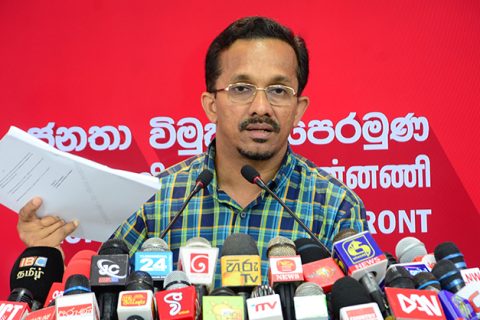(UTV|COLOMBO) – Top 13 leaders of the banned Jamaat-ud Dawa (JuD), including its chief Hafiz Saeed, have been booked in nearly two dozen cases of terror financing and money laundering, days ahead of Pakistan Prime Minister Imran Khan’s visit to the US.
The Counter-Terrorism Department (CTD), which registered the cases under the Anti-Terrorism Act, 1997 in five cities of Punjab, declared that the JuD was financing terrorism from the massive funds collected through non-profit organisations and trusts, including Al-Anfaal Trust, Dawatul Irshad Trust and Muaz Bin Jabal Trust, the Dawn reported on Thursday.
These non-profit organisations were banned in April as the CTD during investigations found that they had links with the JuD and its top leadership and them accused of financing terrorism by building huge assets/properties from the collected funds in Pakistan.
On Monday and Tuesday, 23 FIRs were registered against JuD leaders at the CTD police stations of Lahore, Gujranwala, Multan, Faisalabad and Sargodha.
Besides Saeed, his brother-in-law Naib Emir Abdul Rehman Makki, Malik Zafar Iqbal, Ameer Hamza, Mohammad Yahya Aziz, Mohammad Naeem, Mohsin Bilal, Abdul Raqeeb, Ahmad Daud, Muhammad Ayub, Abdullah Ubaid, Mohammad Ali and Abdul Ghaffar were also booked.
The move comes ahead of Imran Khan’s upcoming five-day visit to the US from July 20, during which he will hold talks with US President Donald Trump.
“Formal investigations on a large scale have been launched against the top leadership of the JuD for terror financing after the registration of FIRs against them during the last two days,” said a spokesperson for the CTD, Punjab.
According to the official, substantial and irreversible punitive/legal action has been taken against them by the state, making these organisations “fully dysfunctional”.
He said action was taken against them in connection with implementation of UN sanctions imposed on the JuD, Lashkar-e-Taiba and Falah-i-Insaniyat Foundation (FiF) besides their designated entities and leadership as directed by the National Security Committee (NSC) in January under the National Action Plan.
The CTD took some months to collect evidence against the banned organisations regarding terror financing. “These assets/non-profit organisations have already been taken over by the government in compliance with UN sanctions,” he added.
The spokesperson said the suspects had committed multiple offences of terror financing and money laundering and would be prosecuted in anti-terrorism courts. (Khaleejtimes)
[alert color=”faebcc” icon=”fa-commenting”]Keeping up to date with breaking news while you are on the move is now simple with UTV Alerts [textmarker color=”8a6d3b”]Type REG UTV and send to 77000[/textmarker] on your Dialog, Airtel, or Hutch mobile connection[/alert]



